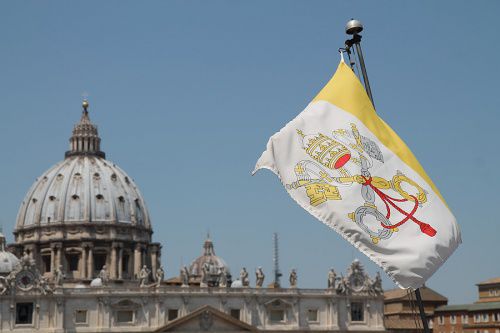The Council of Europe's second progress report on the reform of Vatican finances, released Tuesday, found that the Holy See has addressed many of the deficiencies in its financial system, while continuing to urge that it ramp up money laundering prosecutions.
The Dec. 15 report was released by Moneyval, the Council of Europe’s anti-money laundering committee.
According to a Moneyval statement, the Holy See “has addressed most of the technical deficiencies in its legislation and regulations. However there is a need now for an anti-money laundering and counter terrorist financing system to deliver effective results in terms of prosecutions, convictions, and confiscation.”
Moneyval's lengthy report notes that since the anti-money laundering system was set up, “29 money laundering investigations have been undertaken in the Holy See / Vatican City State by prosecutorial law enforcement bodies” but “no prosecutions have, as yet, been initiated.”
The report also highlights that more than 11 million euros ($12 million) are frozen in Vatican accounts. The report reads that “there still remains, however, a continued lack of indictments for money laundering or for related serious proceeds-generating offenses in the three years since (the 2012 report). This situation needs to be improved."
Despite these criticisms the report can be considered a step forward as the Vatican establishes a financial system in line with its uniqueness — a state where there are neither banks nor a market — and which is at the same time compliant with current standards countering money laundering and the financing of terrorism.
The report praises the remediation process of the accounts in the Institute for Works of Religion, or Vatican bank. In 2013 the Vatican bank updated its guidelines for categories of customers, restricting those with access to the institution.
The Moneyval report notes that these guidelines are being followed strictly, and that the remediation process has led to the closing of some 4,600 accounts.
The report praised the Vatican's Financial Intelligence Authority for its oversight of the Vatican bank, and the continuity of the FIA's governance. It mentioned that the FIA's board “comprises more persons with professional and international AML/CFT experience and expertise, including the first lay president.”
In a Dec. 9 statement, Msgr. Antoine Camilleri, Vatican under-secretary for relations with states and head of the Holy See’s delegation at Moneyval, maintained that “the latest progress report confirms that the Holy See has established a functional, sustainable and effective system, aiming at preventing and fighting financial crimes”.
Moneyval issues peer-to-peer evaluations of members states as part of an on-going process which is continually updated to maintain high standards for countering money-laundering and the financing of terrorism.

